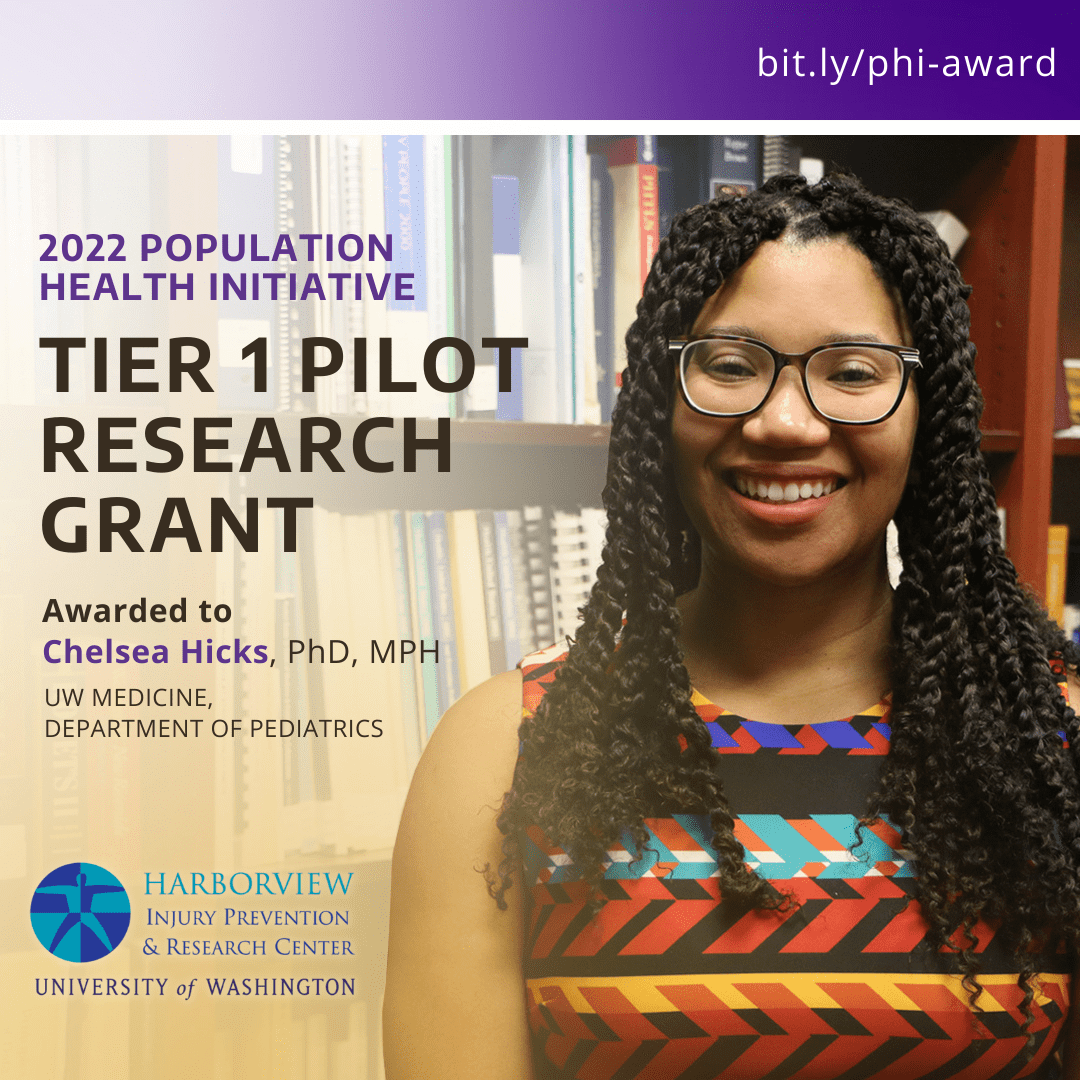
The Population Health Initiative has announced the award of 11 Tier 1 Pilot Grants to teams representing researchers from seven different University of Washington schools and colleges, plus UW Tacoma and multiple community-based partners. The total value of these 11 awards is $358,706, which included $266,843 from the initiative plus additional school, college and departmental matching funds. HIPRC Trainee, Chelsea Hicks, PhD, MPH, was among the 11 awarded.

Project Title
Residential Segregation and Pediatric Injury and Violence in Seattle, Spokane, and Tacoma
Investigators
Chelsea Hicks, Department of Pediatrics
Frederick Rivara, Department of Pediatrics
Abril Harris, School of Social Work
Rebecca Walter, Department of Real Estate
Monica Vavilala, Department of Anesthesiology & Pain Medicine
Qian Qiu, Department of Pediatrics
Tony Escobar, Mary Bridge Children’s Hospital
Timothy Bax, Sacred Heart Medical Center
Project Abstract
Residential segregation is a problem of precedence across the United States. Research strongly indicates that race- and social class-based policies continue to reinforce segregation, which is evident by exacerbated disparities in healthy food accessibility, the built environment, violence exposure and overall health outcomes. Discriminatory practices have enabled structural racism through built environment disparities and adverse outcomes such as less greenspace and poorer housing quality in neighborhoods with historic disinvestment. Historic redlining was a practice of cultivating exclusion and disenfranchisement through residential segregation, and these practices have further evolved into modern social determinants of health outcomes related to residential segregation and built environment factors.
Thus, the overall goal of this work is to elucidate the health effects of racial segregation from historical built environment policies and practices. To provide new information at the intersection of residential segregation, the built environment, and pediatric injury and violence occurrence, this project will evaluate the association between residential segregation and the prevalence and severity of pediatric injury and violence in the three largest cities in Washington state (Seattle, Spokane and Tacoma).
Specific Aims
1) Create a model of the relationship between residential segregation, the built environment and pediatric injury exposure through a scoping review.
2) Quantify present day association between residential segregation and pediatric injury and violence outcomes in three Washington state cities (Seattle, Tacoma, Spokane).
3) Identify potential interventions through moderating and mediating mechanisms in the relationship between residential segregation and pediatric injury and violence.